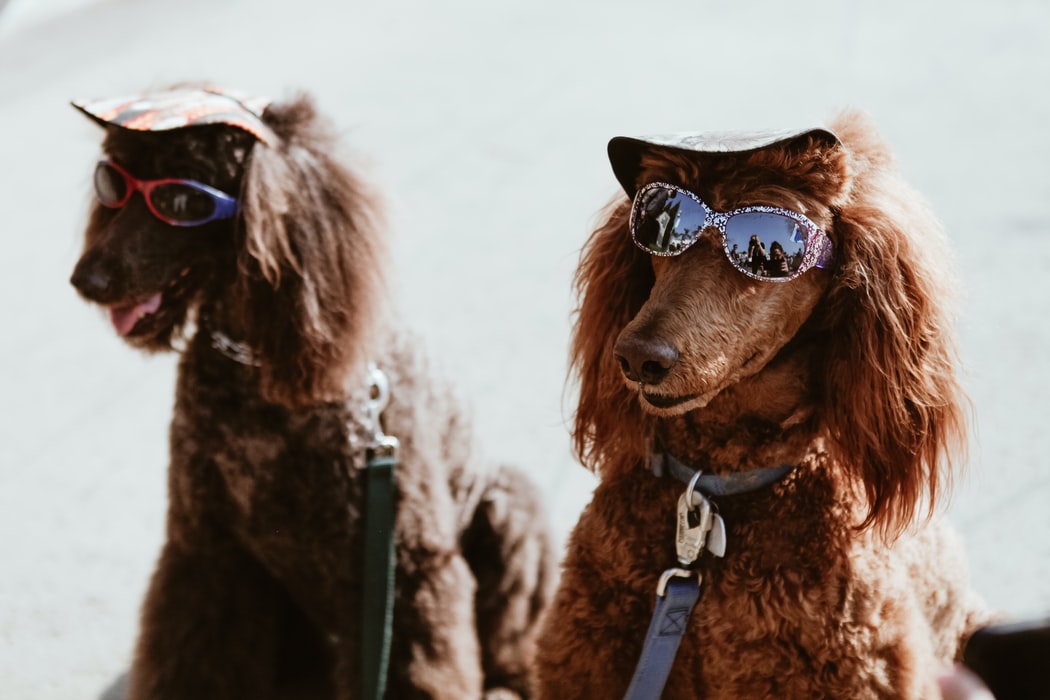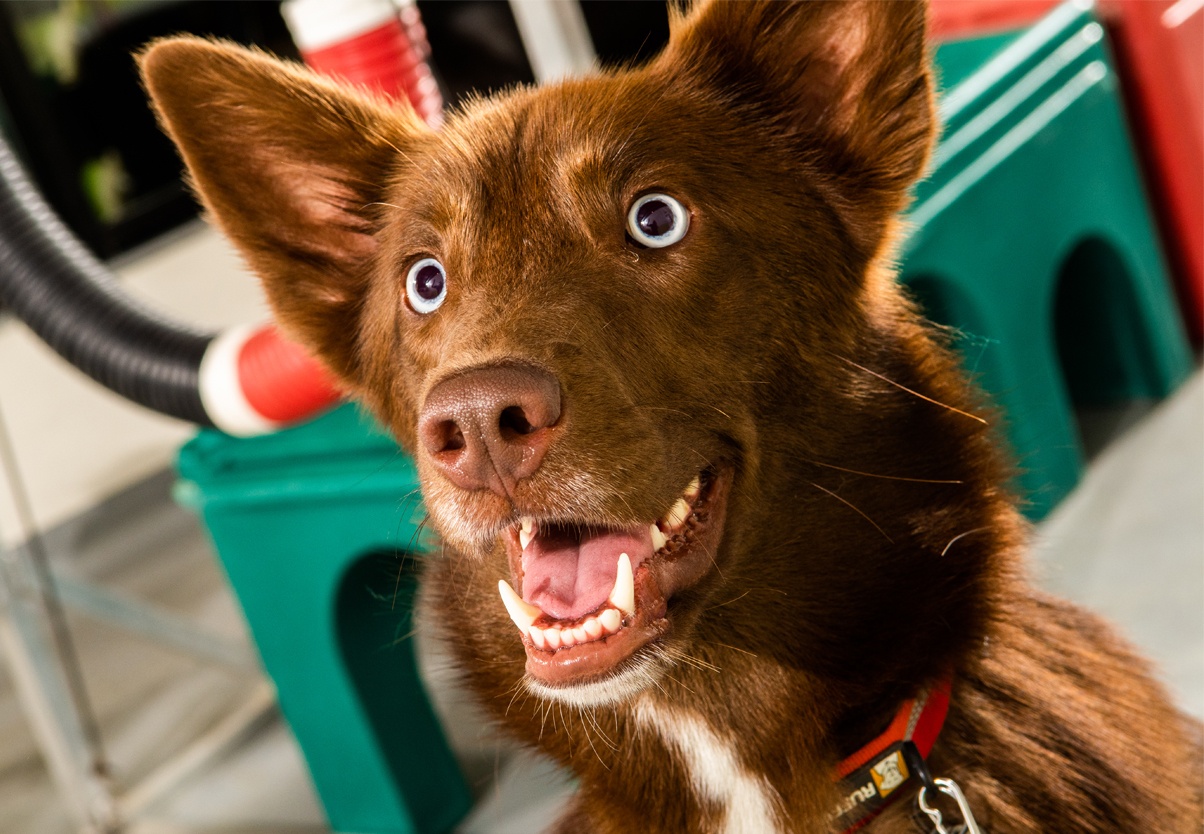
19 January 2021 | Dog
Pandemic and quarantine: 5 effects of COVID-19 on your dog
The topic that’s on everyone’s lips these days is COVID-19, which has thrown all our lives into disarray. Quarantined, masked and often stressed, we’re all in the same boat. But can you imagine what it must be like for your dog, who has no understanding of the pandemic? The changes to his or her routine and environment are certainly causing frustration and confusion. Let’s learn about 5 factors that can affect your dog’s well-being and some possible solutions.
1. Wearing a mask
It’s likely your dog starts to bark when you pass someone on the street who’s wearing a mask. That’s not surprising—it takes time to get used to wearing a mask, even for people. Imagine how your companion feels when he or she can suddenly no longer recognize faces, even those that are familiar, or read the facial expressions of people who now seem so different. Losing their bearings is a source of anxiety and fear for dogs.
2. Change of routine
You’re spending more time at home, which means more time with your dog. While at first this might have felt like a vacation, after a few months being in constant company is starting to have repercussions. Formerly your dog was in the habit of taking long naps while you were away, having more peace and quiet and enjoying the security of his crate. But now, he’s constantly being stimulated by noise, movement, sounds or your voice. It might even be possible that you occasionally feed your dog outside of regular mealtimes in order to enjoy a little tranquility during your Zoom meeting. The result? Your dog may have become crabby and irritable. All these changes to their routines can cause aggressive behaviour amongst some dogs, who were not prepared for the quarantine experience.
3. Stress is contagious
Dogs are emotional sponges, and in the same way that they can sense our pain or positive energy, they can also be the recipients of our stress. Your dog understands perfectly well that something’s not right. You avoid other people, you don’t receive visitors anymore, you may have lost your job or perhaps you’re managing your business remotely—no matter what the situation, your dog will sense all this negative energy. Dogs can feel this in your changing mood, but also by your scent, which changes when you’re stressed. They can literally smell your stress. A dog’s keen sense of smell is an amazing thing!
4. Social distancing
Apart from the physical distancing, there’s also social distancing. Under quarantine and separated from our loved ones, with visits and gatherings prohibited, we are deeply affected by our need to connect with others, and this will have a definite effect on our dogs. Even if your dog is a graduate of the best training school there is, she still needs to put her training into practice in different situations. A dog will often respond differently to the same experience when placed in a new environment. On an even more serious note, the record sales of puppies this year forewarns of many behavioural problems in the future when things return to normal, since these pups haven’t been able to develop the right behaviour through contact with other dogs.
5. Separation anxiety
This is the biggest problem amongst dogs with regard to COVID-19! Many canine behaviour experts are worried about going back to “normal.” What will happen when your pet is no longer getting five walks a day? Maybe you’ve already noticed some changes in his behaviour? Does your dog follow you around the house? Does he find it hard to accept when you close a door to be alone, even if it’s just to take a shower? Separation anxiety is a common manifestation of frustration and fear and can be a trigger for aggression or even depression!
While you might be sorely tempted to keep your dog nearby for spontaneous cuddles whenever you feel like it, this is not an ideal situation for your pet. Think about their well-being. How? By allowing them to socialize. The fact is, dogs cannot contract COVID-19 nor transmit it. Since dogs cannot be a vector for the disease, why not offer them a daycare experience? This will allow them to stick to a routine, build trust and independence and put their training into practice in a stimulating, safe environment. These days off might even be beneficial… for both of you!
At MUZO, we’ve developed two styles of dog daycare in order to welcome pets with different personalities and needs.
Ready to try it out? Please contact us.
514 931-1117
info@muzohotel.com
Sources:
The Washington Post:
https://www.washingtonpost.com/lifestyle/2020/08/24/dogs-behavior-coronavirus/
Ici Radio-Canada:
https://ici.radio-canada.ca/nouvelle/1695636/adoption-animaux-covid19-coronavirus-accueil-chien-chat
https://ici.radio-canada.ca/premiere/emissions/jonction-11-17/segments/entrevue/212972/chiens-therapeute-comportements-pandemi
La Presse:
https://www.lapresse.ca/societe/animaux/2020-04-10/attention-aux-effets-du-confinement-sur-les-animaux-domestiques?fbclid=IwAR3nQ0r0Zkdu6nIcA1zKdHSuSFhABCkcnORrDAzibQEmWhftxdqPnac4Exs
https://www.lapresse.ca/societe/animaux/2020-06-06/les-chiots-plus-populaires-que-jamais-en-periode-de-confinement



